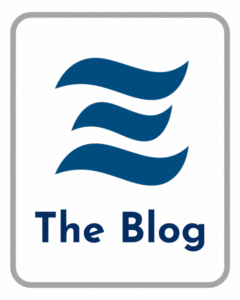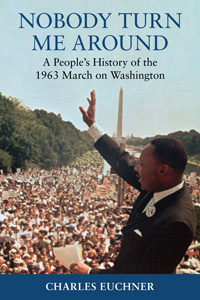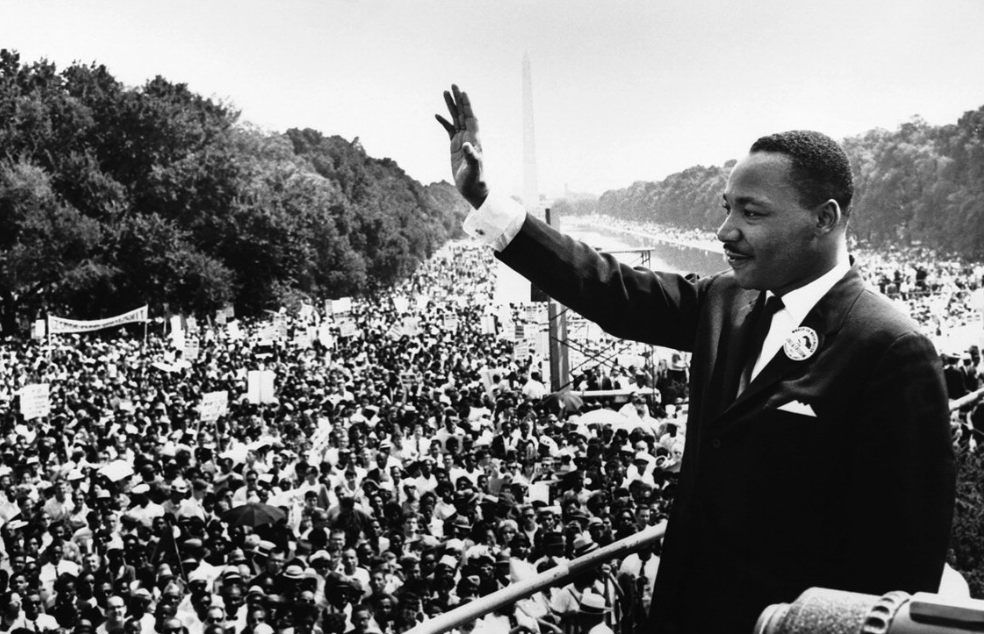Every time we commemorate the life and legacy of Martin Luther King, we talk about the co-called “I Have a Dream” oration at the March on Washington on August 28, 1963.
 The speech is certainly worthy of the praise, as I explore in my book Nobody Turn Me Around. Some other King speeches were probably better. To me, the most profound was his Riverside Church speech against the Vietnam War in 1967.
The speech is certainly worthy of the praise, as I explore in my book Nobody Turn Me Around. Some other King speeches were probably better. To me, the most profound was his Riverside Church speech against the Vietnam War in 1967.
But a myth has grown that King’s dream passage was a riff. The myth goes like this: Toward the end of the speech, the gospel singer Mahalia Jackson called out: “Tell them about the dream, Martin!” King did not prepare to talk about a dream. But, prompted by Mahalia, King gave one of the greatest prose poems in the history of American rhetoric.
The only problem with that story is that it’s not true. In fact, King worked on the dream passage the night before the March on Washington. He debated whether to use the passage the night before with Andrew Young and Wyatt Tee Walker. When Young and Walker left for the night, King practiced the passage in his hotel room.
For my book Nobody Turn Me Around: A People’s History of the 1963 March on Washington, I interviewed three people who were with King the night before, as well as a man who stayed in the room next to King’s. In this excerpt from my book, I explain how the “dream” passage actually happened.
Origins of the ‘Dream’
A passage from Nobody Turn Me Around: A People’s History of the 1963 March on Washington, by Charles Euchner, published in 2010 by Beacon Press:
King had spoken about a dream for months. At a mass meeting in Birmingham, he sketched out a vision of an integrated society, concluding, “I have a dream tonight.”
The Bible talks of dreamers. The book of Joel teaches that “your old men shall dream dreams, and your young men shall see visions.” In Genesis, Joseph dreams of what will happen in the future, and his father, Jacob, rewards him with a coat of many colors. In Egypt, Joseph lands in jail, where other inmates tell their dreams. When the Pharaoh learns that Joseph has interpreted those dreams, he asks Joseph’s advice.
The “American Dream”—that dizzying collection of images about family and community, flag and sacrifice, immigrants and ancestors, prosperity and ever-expanding inclusion—was a standard trope. King referred to it often.
SNCC and CORE organizers also talked about a dream as they worked in the Deep South. When King visited the site of a church burned to the ground by the Ku Klux Klan in 1962, in Terrell County, Georgia, a student named Prathia Hall started saying, “I have a dream,” trancelike.
 King sometimes hesitated to talk about dreams because he feared those dreams turning into nightmares. He read Langston Hughes’s 1951 poem “Harlem,” which asks what happens to a dream deferred. “Dreams are great, dreams are meaningful,” King said. “And in a sense all of life moves on the wave of a dream. Somebody dreams something and sets out to bring that dream into reality, and it often comes in a scientific invention, it often comes in great literature, it often comes in great music. But it is tragic to dream a dream that cannot come true.” King understood the dangers of dreams.
King sometimes hesitated to talk about dreams because he feared those dreams turning into nightmares. He read Langston Hughes’s 1951 poem “Harlem,” which asks what happens to a dream deferred. “Dreams are great, dreams are meaningful,” King said. “And in a sense all of life moves on the wave of a dream. Somebody dreams something and sets out to bring that dream into reality, and it often comes in a scientific invention, it often comes in great literature, it often comes in great music. But it is tragic to dream a dream that cannot come true.” King understood the dangers of dreams.
Always, King remembered the dreamlike state that strengthened his own commitment to God, back during the Montgomery bus boycott. Late one night, King answered the phone and heard a profanity-filled diatribe: “Nigger, we are tired of you and your mess now. . . . If you aren’t out of this town in three days, we are going to blow your brains out, and blow up your house.” Unable to sleep, King sipped coffee. Where does that hatred come from? Why is it so powerful? How can it change?
“And I discovered then that religion had to become real to me and I had to know God for myself,” King remembered later. “And I bowed down over that cup of coffee. I will never forget it. And . . . I prayed a prayer, and I prayed out loud that night. I said, ‘Lord, I’m down here trying to do what’s right. I think I’m right. I think the cause we represent is right. But, Lord, I must confess that I’m weak now. I’m faltering. I’m losing my courage. And I can’t let the people see me like this . . . because if they see me weak and los- ing my courage, they will begin to get weak.’”
At that moment, King heard some inner voice: “Martin Luther, stand up for righteousness. Stand up for justice. Stand up for truth. And lo I will be with you, even until the end of the world.”
That was King’s dream.
Two months before the March on Washington, King led the Great March for Freedom in Detroit. The United Auto Workers organized the demonstration as a trial run for the March on Washington. That march brought out a hundred thousand people—two hundred thousand, some insisted—who walked down Woodward Avenue.
King told the crowd at Cobo Hall: “I have a dream this afternoon.” He de- scribed the dream . . . that one day the sons of former slaves and slave owners could “live together as brothers” . . . that white and black children “can join hands as brothers and sisters” . . . that “men will no longer burn down houses and the church of God simply because people want to be free” . . . that “we will no longer face the atrocities that Emmett Till had to face or Medgar Evers had to face” . . . that his four children will be “judged on the basis of the content of their character, not the color of their skin” . . . that “right here in Detroit, Negroes will be able to buy a house or rent a house anywhere that their money will carry them and they will be able to get a job” . . .
That day in Detroit, people cheered wildly. The theme resonated, more with each refrain. “Yeah!” the crowd shouted. “That’s right!” “I have a dream!”
But the Detroit speech had a clunky feel. And the dream passage consumed four minutes. The speech in Washington was supposed to last only seven minutes. Roy Wilkins, the head of the NAACP, threatened to turn off the microphone if King spoke for more than ten minutes. If King talked about the dream, he wouldn’t have time for much else.
King asked Wyatt Walker and Andrew Young what they thought.
“Don’t use the lines about ‘I have a dream,’” Walker told King. “It’s trite, it’s cliché. You’ve used it too many times already.”
Young agreed. King looked up but said nothing.
Years before, King came up with the refrain “Give us the ballot” for hi speech for the Prayer Pilgrimage for Freedom. He showed it to Bayard Rustin. “Martin, the mentality of blacks today is not that they want to be given anything,” Rustin said. “They want to demand.” King agreed, but decided to keep the line. “It just rolls better for me,” he said.
In the room next to King’s at the Willard Hotel, Harry Boyte lay down in a sleeping bag on the floor. His father had recently begun work as the office manager of King’s Southern Christian Leadership Conference. Harry joined his father in Washington before starting college at Duke that fall.
As he drifted to sleep, Harry heard a booming baritone from the next room. Over and over he heard the same words: “I have a dream . . . I have a dream . . . I have a dream . . .”
“He must be practicing his speech,” young Harry Boyte thought.
Before you go . . .
• Like this content? For more posts on writing, visit the Elements of Writing Blog. Check out the posts on Storytelling, Writing Mechanics, Analysis, and Writers on Writing.
• For a monthly newsletter, chock full of hacks, interviews, and writing opportunities, sign up here.
• To transform writing in your organization, with in-person or online seminars, email us here for a free consultation.

